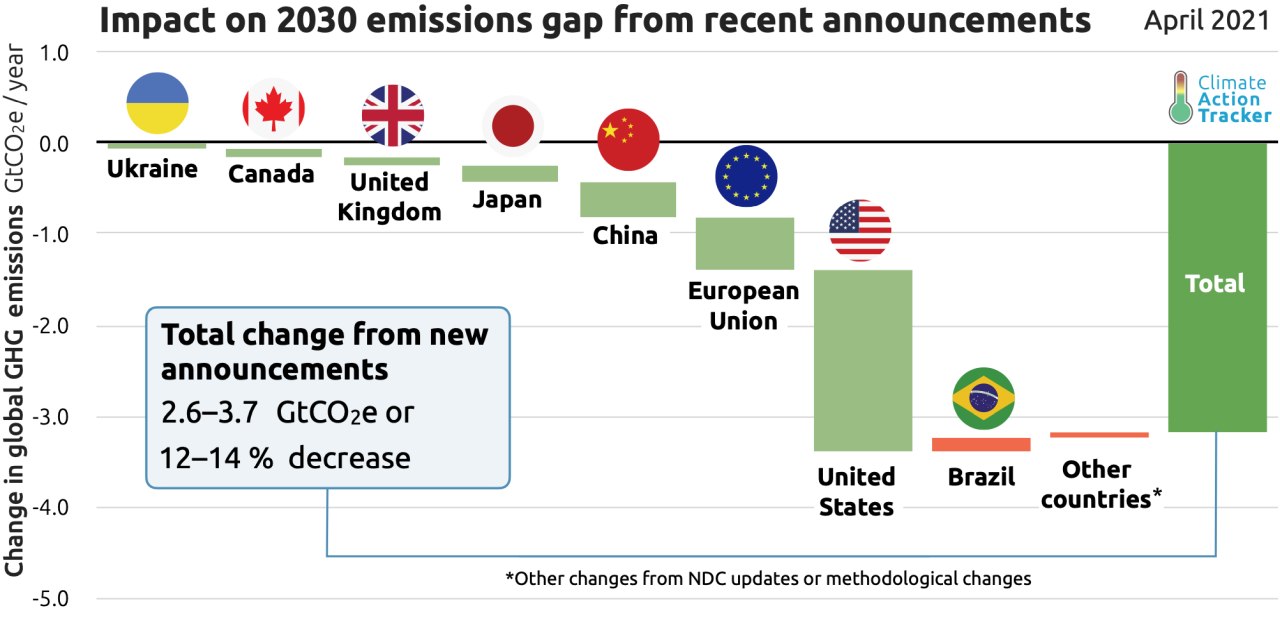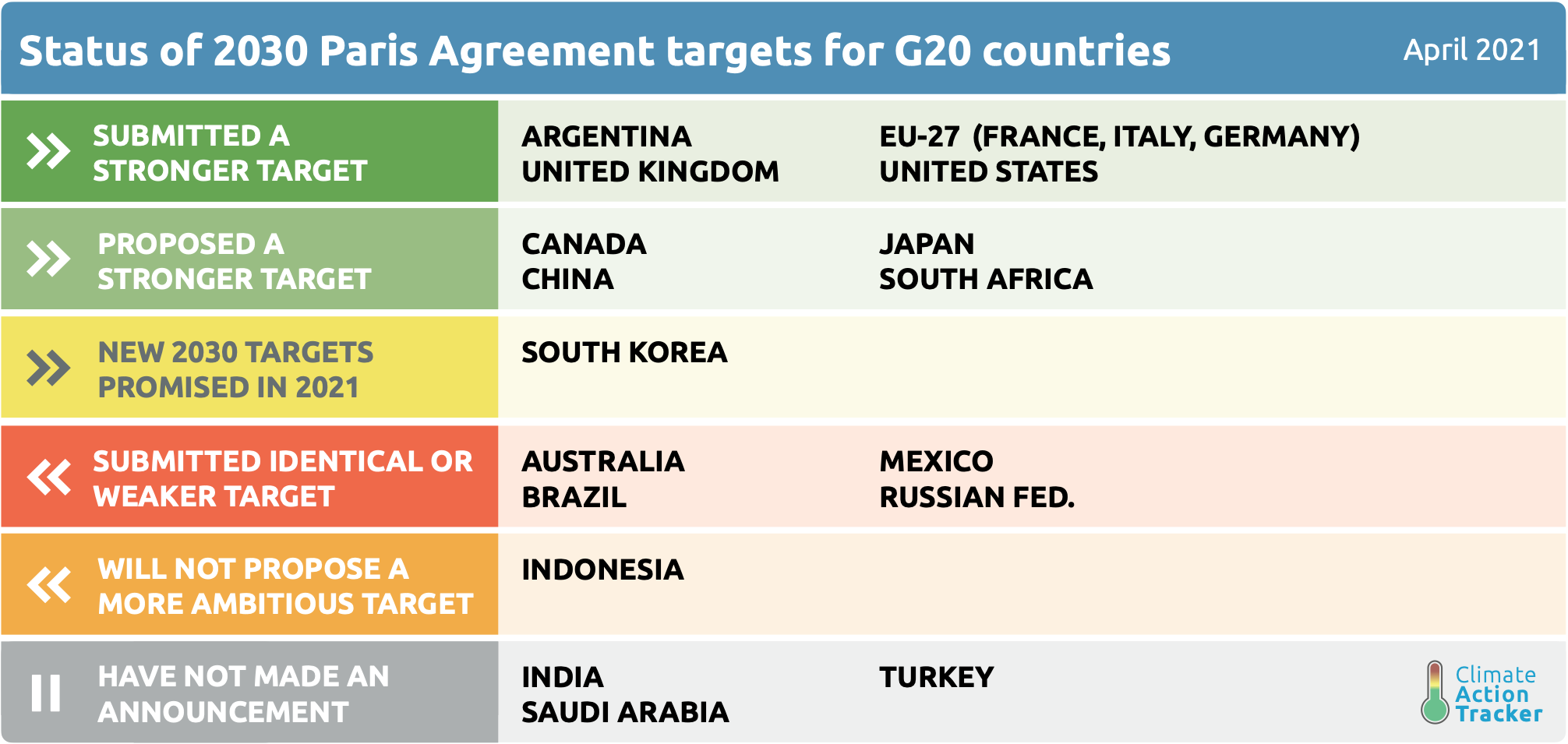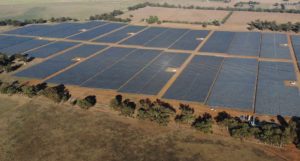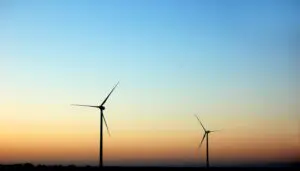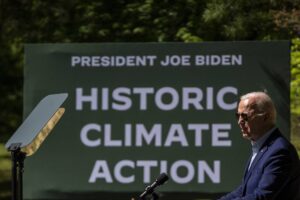A new analysis conducted by Climate Action Tracker shows that the the raft of new climate commitments announced at the United States ‘Leaders Climate Summit’ event will reduce global emissions by between 2.6 and 3.7 gigatonnes of CO2-e, a 12 to 14% decrease on predicted levels.
That is substantial, but a gap of between 20 and 24 gigatonnes of CO2-e remains to be close to achieving a 1.5C climate target as stipulated in the 2015 Paris Climate agreement.
“President Biden’s summit has led to the single biggest reduction in the 2030 emissions gap – at 12-14% – that we’ve ever seen, and has also reinforced the centrality of the 1.5°C limit in the Paris agreement as a global goal,” said Bill Hare of Climate Analytics, a partner in the Climate Action Tracker. Japan, Canada, the US and Japan announced updated 2030 Paris targets, known as ‘Nationally Determined Contributions” (NDCs).
China announced an intention to peak coal power in 2025, and South Korea announced a plan to end public financing of coal-fired power in other countries. Brazil brought forward the country’s climate neutrality goal to 2060 to 2050, but a change in the baseline of the 2030 target significantly weakens the country’s target, resulting in the country’s climate impact worsening on global accounts.
Australia joined Brazil, Mexico and the Russian Federation in being categorised as refusing to update targets or submitting weaker targets at the event. Indonesia, India, Saudi Arabia and Turkey have either not made announcements or won’t be proposing more ambitious targets.
Australia received significant criticism for not only failing to update its 2030 climate targets but being seen as attacking the host country and other countries for focusing on targets and ambitions. “For Australia, it is not a question of if or even by when for net zero, but importantly how”, Morrison said at the event. The majority of other countries focused specifically on the “when”, with the dates and magnitudes of climate ambitions being the focus of nearly every speech.
“In all my years of listening and contributing to international speeches on climate action, this was one of the worst. Prime Minister Morrison descended into dismissing the promises put forward by more ambitious countries, which included those of the host”, said Richie Merzian a Climate & Energy Program Director at The Australia Institute. “Prime Minister Morrison had an opportunity to rise up and represent the nation on an issue of global significance. Instead he was defensive, competitive and hard to follow, reeling off Trump-like statistics and comparisons”.
Morrison was criticised by RenewEconomy for using misleading statistics to inflate Australia’s emissions reductions percentages relative to the baseline year, and has been more broadly criticised by members of the US administration for a lack of strong action on climate. A new coalition of fossil fuel producing nations aiming for net zero excludes Australia, despite Australia being the third largest exporter of fossil fuels globally.



